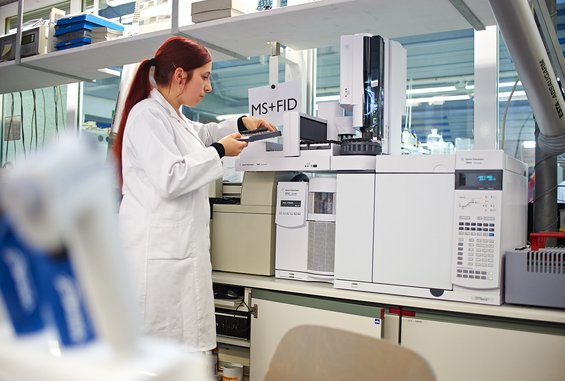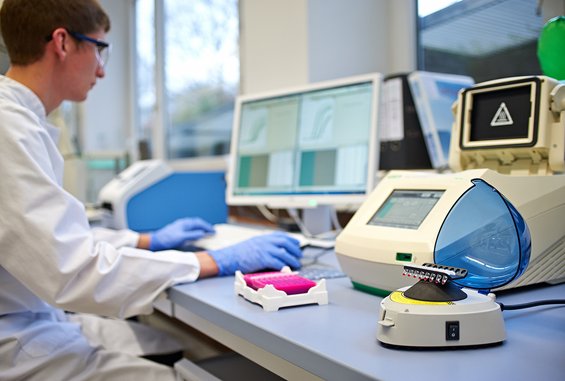
Bioanalysis
In a Nutshell
Profile
The Coburg bioanalysis program (Bachelor’s and Master's) sees itself as an interdisciplinary program that combines the methodological knowledge from different subject areas for the purpose of finding solutions to problems. In the Master's program, scientists from biology, chemistry, and related disciplines teach and conduct research. These scientists from the subdisciplines of microbiology, biochemistry, physical chemistry, pharmacology, molecular biology, and biotech organize joint projects and thus bring together different views and methods. The academic program has access to modern labs that allow students to apply their theoretical knowledge directly to practice.
Research and Practice
The Master's program at Coburg University stands out due to its scientific nature and very high practical orientation. Wide-ranging and close regional, national, and international contacts to the industrial practice and research institutes provide a solid foundation for both. Students can participate in the current research projects of their mentors. The Master's thesis gives them the opportunity to tackle practice-relevant and challenging topics intensively using modern research methods.


Structure of the Program
Semester 1
- Analysis for molecular biology
- Bioscience seminar
- Instrumental analysis and methodology
- Clinical analysis
- Ethics in biology and medicine
Semester 2
- Project work: Methodology development
- Bioanalysis colloquium
- Excursion
- Compulsory electives
Semester 3
- Master's seminar with presentation
- Master's thesis
Curriculum and Examination Regulations
The [study plan]* provides an overview of the structure of the program. The [module manual]* provides information about the content of the individual modules. The [study and examination regulations]* form the legal basis for the study program. Contact your academic advisor Prof. Dr. Stefan Kalkhof concerning the content of the program.
*only available in german at the moment
External content
Job Perspectives
The Master’s program expands and deepens the basic and technical knowledge conveyed in the Bachelor program. Graduates qualify for challenging work in research and leadership responsibilities, for instance in development, production, and quality assurance. Graduates can work in a variety of potential industries. This includes: (bio) analysis labs, food industry, pharmacology, clinics, forensics, environmental technology and analysis, hygiene etc. Master’s graduates can also apply for higher ranking positions in public agencies and authorities.
Cooperative doctoral studies
Graduates with a good Master's degree can continue to work in research and academia after completing the Master’s program. They also have the possibility of writing their dissertation at Coburg University and getting their Ph.D. in cooperation with a university.
Application and Admission Requirements
Admission requirements
- Diplom or Bachelor’s degree with a GPA of 2.5 or better (German grading system); the final grade must be available
- Fields of core program: bioanalysis, chemistry, biology, and related fields
- At least seven semesters (210 ECTS), including a required internship or six semesters (180 ECTS) without required internship semester, which needs to be made up by the time the Master’s thesis is registered.
Application
Here you can find all the important information about evaluating your school-leaving certificates and learning German in order to start a master program at the University of Coburg.
Since the program is taught in German, you also have to prove your knowledge in German before the start of studies (level C1/C2).
